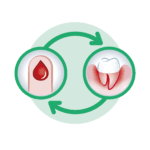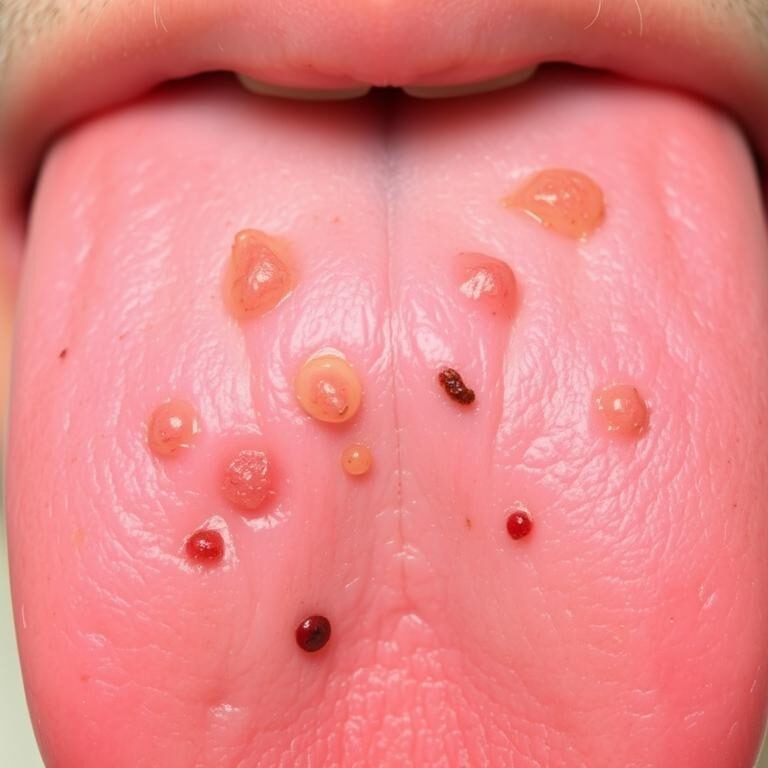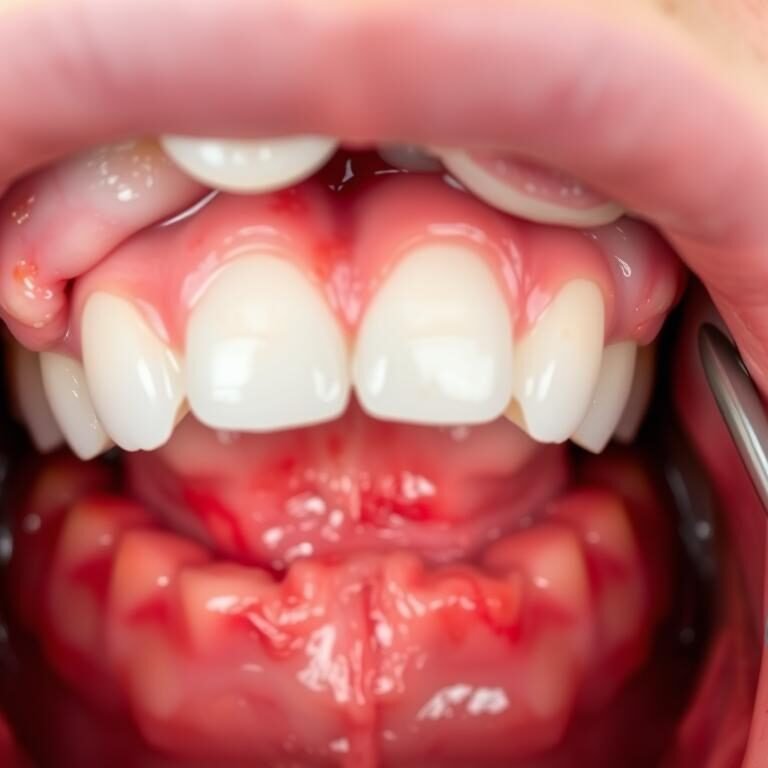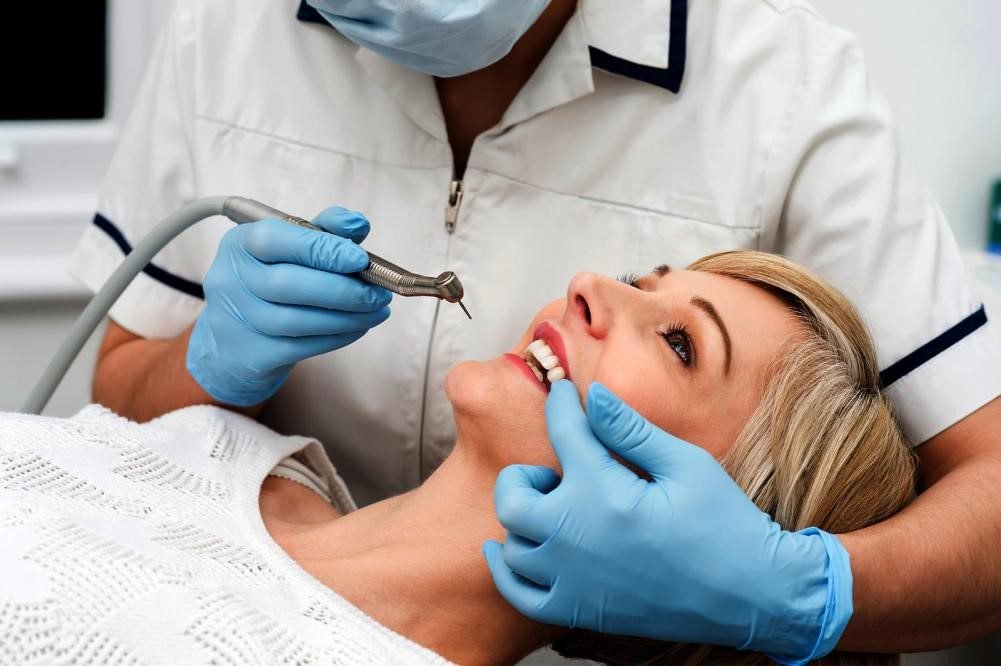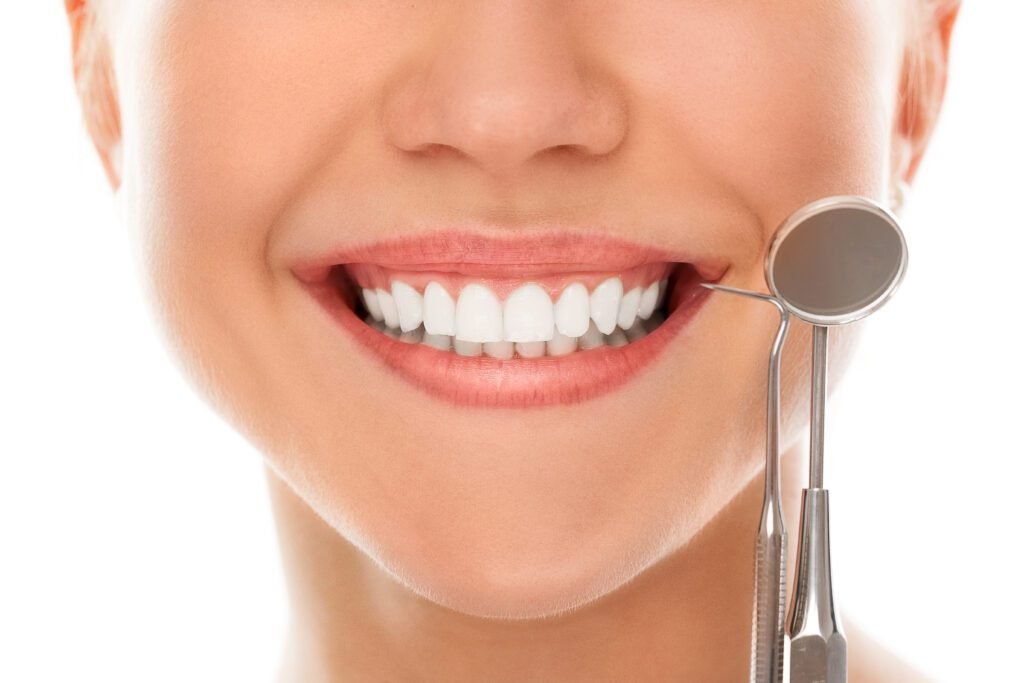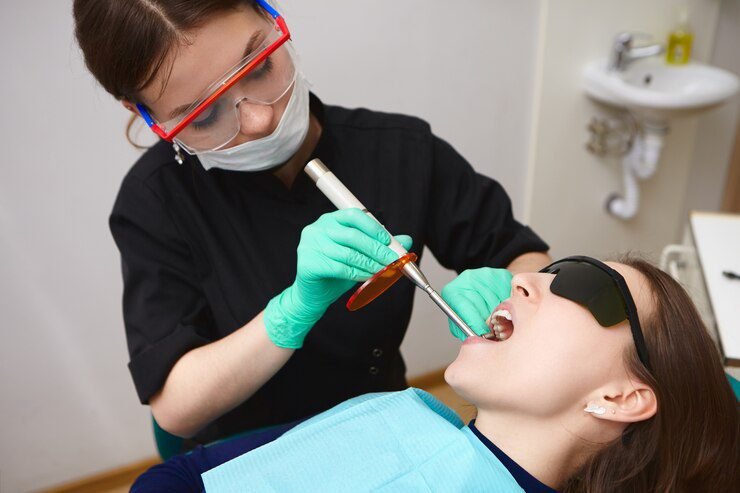Table of Contents
The Importance of Regular Dental Check-ups
Regular dental check-ups play a crucial role in maintaining not just your oral health, but also your overall well-being. By visiting your dentist at recommended intervals, you can catch any potential issues early on, preventing them from escalating into more serious problems down the line. These routine check-ups allow your dentist to assess the health of your teeth and gums, conduct thorough cleanings, and provide personalized advice on how to better care for your oral hygiene.

Moreover, dental check-ups are not just about preventing cavities or gum disease; they also serve as an opportunity for your dentist to screen for other systemic health conditions that may manifest in the mouth. Conditions such as diabetes, osteoporosis, and even some types of cancer can exhibit early warning signs in the oral cavity. Therefore, prioritizing regular dental visits is not just about maintaining a beautiful smile, but about safeguarding your overall health and well-being.
Identifying and Treating Sleep Disorders Through Dental Examinations
In dentistry, identifying and treating sleep disorders through dental examinations plays a crucial role in enhancing overall health and quality of life for individuals. Dental professionals are well-positioned to detect signs of various sleep-related issues during routine check-ups, providing early intervention and personalized treatment plans. Through thorough oral assessments and discussions with patients, dentists can uncover underlying factors contributing to sleep disturbances, such as bruxism, sleep apnea, or temporomandibular joint disorders.
Table
| Dental Signs | Possible Sleep Disorder | Dental Treatment |
|---|---|---|
| Bruxism (teeth grinding) | Sleep apnea, stress-related sleep disorders | Custom night guards, stress management |
| Tongue scalloping | Obstructive sleep apnea (OSA) | Oral appliance therapy (OAT) |
| Eroded enamel | Acid reflux during sleep, sleep apnea | Enamel protection, OAT for apnea |
| High Mallampati score | Increased risk of OSA | Referral to sleep specialist, OAT |
| Narrow airway | OSA, snoring | Mandibular advancement devices (MAD) |
By utilizing advanced diagnostic tools and collaborating with sleep specialists, dentists can offer comprehensive care tailored to each patient’s unique needs. Customized oral appliances can be designed to address specific sleep disorders, promoting better breathing patterns and jaw alignment during sleep. Treatment of conditions like teeth grinding and TMJ disorders not only improves oral health but also plays a significant role in optimizing sleep quality. Through the integration of dental expertise with sleep medicine, patients can achieve improved sleep hygiene and overall well-being.
The Connection Between Oral Health and Quality of Sleep
Poor oral health can significantly impact the quality of sleep an individual receives. Conditions such as periodontal disease, tooth decay, or untreated dental issues can lead to discomfort, pain, and difficulty breathing during sleep, all of which can disrupt the sleep cycle. Moreover, untreated oral health problems can also contribute to issues like snoring, sleep apnea, or teeth grinding, further compromising the overall sleep experience.
The link between oral health and sleep quality is multifaceted and underscores the importance of maintaining good dental hygiene practices. By addressing dental issues promptly and seeking regular check-ups, individuals can not only improve their oral health but also positively impact their sleep patterns. Dentists play a crucial role in educating patients about the connection between oral health and sleep, offering solutions like customized oral appliances for sleep apnea or interventions to prevent snoring, ultimately aiming to enhance overall well-being through better sleep hygiene.
Common Dental Issues That can Affect Sleep
Poor oral health can have a significant impact on the quality of sleep individuals experience. One common dental issue that can disrupt sleep is bruxism, commonly known as teeth grinding. This condition not only causes dental problems like tooth wear and jaw pain but can also lead to sleep disturbances. Individuals who grind their teeth during sleep may unknowingly awaken multiple times throughout the night, preventing them from reaching deep, restorative sleep stages.
Another dental issue that can affect sleep is temporomandibular joint (TMJ) disorders. Dysfunction in the TMJ can result in jaw pain, headaches, and difficulty opening or closing the mouth properly. These symptoms often lead to discomfort while sleeping, causing individuals to toss and turn in search of a more comfortable position. Addressing these common dental issues through proper diagnosis and treatment is essential in improving overall sleep quality and promoting better oral health.
How Poor Oral Health can Lead to Sleep Disruptions
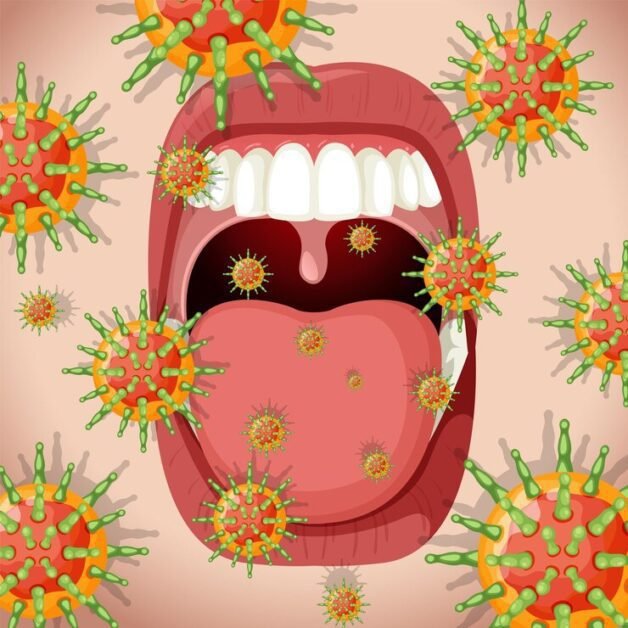
Poor oral health can significantly impact the quality of your sleep. Conditions such as gum disease and tooth decay can lead to discomfort and pain, making it difficult to relax and fall asleep peacefully. Additionally, untreated dental issues can result in inflammation, which has been linked to sleep disorders like insomnia and sleep apnea. When the body is in pain or under stress from oral problems, it can disrupt the natural sleep cycle and cause frequent awakenings throughout the night.
Furthermore, poor oral health can also contribute to snoring and sleep-disordered breathing. When the airway is obstructed due to factors like enlarged tonsils, a misaligned jaw, or oral infections, it can lead to breathing difficulties during sleep. This can result in snoring, gasping for air, and pauses in breathing, all of which can reduce the quality of sleep and leave you feeling tired and groggy during the day. Proper oral hygiene and regular dental check-ups are essential in maintaining overall health and promoting restful sleep.
The Role of a Dentist in Improving Breathing During Sleep
Dentists play a crucial role in improving breathing during sleep by addressing various oral health issues that can impact the quality of rest. One common concern is obstructive sleep apnea, a condition where the airway collapses during sleep, leading to pauses in breathing. Dentists can provide effective treatments such as oral appliances that help keep the airway open, promoting uninterrupted breathing throughout the night.
Additionally, dentists can also assist in correcting issues like deviated septum, enlarged tonsils, or misaligned jaws that may contribute to breathing difficulties during sleep. By carefully evaluating a patient’s oral health and assessing any potential obstructions in the airway, dentists can offer personalized solutions to improve breathing patterns and enhance overall sleep quality. Through their expertise in dental care, dentists can play a significant role in helping patients achieve a better night’s rest and ultimately improve their overall well-being.
The Significance of Proper Jaw Alignment for Better Sleep
Proper jaw alignment plays a crucial role in promoting better sleep quality. When the jaw is misaligned, it can lead to a variety of issues such as temporomandibular joint (TMJ) disorders, teeth grinding, and even obstructive sleep apnea. These conditions can disrupt sleep patterns and result in poor quality of rest, leading to fatigue and other health concerns.
Table
| Jaw Alignment | Impact on Sleep | Treatment |
|---|---|---|
| Proper Alignment | Reduces risk of sleep apnea and bruxism, leading to better sleep quality. | Orthodontic devices, surgery |
| Misalignment | Can cause sleep apnea, bruxism, and disrupted sleep. | Corrective treatments like braces, mouthguards, or surgery |
By addressing jaw alignment through various dental interventions, such as orthodontic treatments or customized oral appliances, dentists can help improve breathing during sleep and alleviate the strain on the jaw joints and muscles. This not only enhances the comfort of the individual during sleep but also contributes to overall well-being and proper functioning of the oral structures. Proper jaw alignment is therefore essential for achieving a restful and rejuvenating night’s sleep.
Treating Teeth Grinding and Its Impact on Sleep Quality
Teeth grinding, or bruxism, can have a significant impact on one’s sleep quality and overall oral health. Many people are unaware that they grind their teeth, as it often occurs during sleep. However, the consequences of bruxism can lead to headaches, jaw pain, worn enamel, and even disrupted sleep patterns.
Dentists play a crucial role in diagnosing and treating teeth grinding through various methods such as customized night guards. These oral appliances are designed to protect the teeth from grinding against each other during sleep, ultimately improving sleep quality and reducing the associated negative effects of bruxism. It is essential for individuals experiencing teeth grinding to seek professional dental advice to prevent further damage and ensure a restful night’s sleep.
Addressing Temporomandibular Joint (TMJ) Disorders for Improved Sleep
Temporomandibular Joint (TMJ) disorders can significantly impact an individual’s quality of sleep, leading to discomfort and disruptions throughout the night. These disorders, affecting the joint connecting the jaw to the skull, can result in pain, restricted movement, and even headaches, all of which can interfere with the ability to achieve restful sleep. The relationship between TMJ disorders and sleep disturbances is a complex one, often involving muscle tension, joint inflammation, and overall oral health.
Addressing TMJ disorders is crucial in improving one’s sleep patterns and overall well-being. Dentists can play a pivotal role in diagnosing and treating these issues through a variety of methods, including custom oral appliances, lifestyle changes, and therapy. By addressing the underlying causes of TMJ disorders, individuals can experience relief from pain, improved jaw function, and better sleep quality. Working closely with dental professionals can lead to personalized treatment plans that aim to alleviate symptoms and promote a more restful night’s sleep.
The Benefits of Customized Oral Appliances for Sleep Apnea
Customized oral appliances offer significant benefits for individuals suffering from sleep apnea. These devices work by gently repositioning the jaw to keep the airway open during sleep, reducing or eliminating the episodes of breathing pauses characteristic of sleep apnea. By promoting proper breathing and uninterrupted sleep, these oral appliances can improve the quality of life for sleep apnea patients.
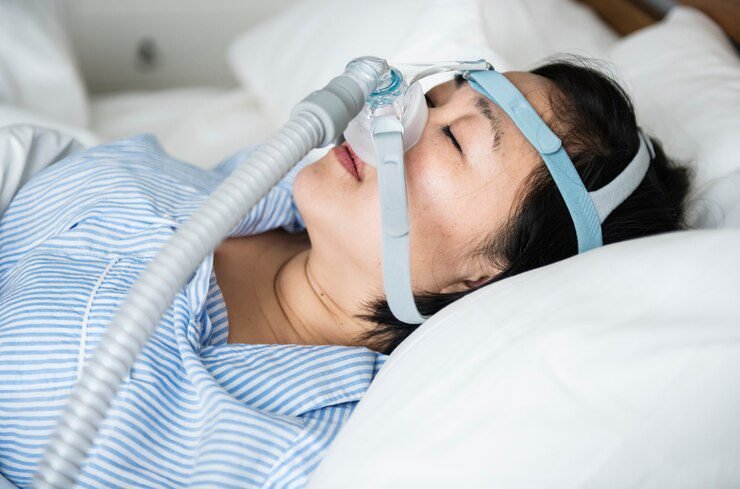
Furthermore, customized oral appliances are comfortable to wear, making them a preferred treatment option for those who cannot tolerate continuous positive airway pressure (CPAP) machines. These devices are convenient, portable, and easy to maintain, providing a more user-friendly alternative for managing sleep apnea. With the ability to improve sleep quality and reduce the symptoms of sleep apnea, customized oral appliances present a valuable solution for individuals seeking effective and comfortable treatment options.
Preventing Snoring Through Dental Interventions
Snoring is a common issue that affects millions of people worldwide and can disrupt not only the snorer’s sleep but also that of their partners. Fortunately, dental interventions can play a significant role in preventing snoring and improving the quality of sleep for individuals. One effective method is the use of oral appliances specially designed by dentists to help keep the airway open during sleep, reducing the likelihood of snoring.
These oral appliances work by repositioning the jaw or tongue to maintain an unobstructed airway, which can be a game-changer for individuals struggling with snoring. By consulting with a dentist experienced in sleep disorders, personalized oral appliances can be created to address the specific needs of each patient, leading to a more restful and undisturbed sleep for both the individual and their loved ones.
Improving Overall Well-being Through Better Sleep Hygiene
Having good sleep hygiene is essential for overall well-being as it plays a crucial role in maintaining physical and mental health. Poor sleep can lead to a range of issues, including fatigue, decreased cognitive function, and increased risk of chronic health conditions. Establishing a consistent bedtime routine, creating a comfortable sleep environment, and avoiding stimulants like caffeine close to bedtime are some key strategies for improving sleep quality.
Incorporating regular exercise into your daily routine can also contribute to better sleep hygiene. Exercise not only helps in reducing stress and anxiety, but it can also promote better sleep patterns. Additionally, limiting screen time before bed, practicing relaxation techniques such as deep breathing or meditation, and ensuring your mattress and pillows provide adequate support are all important factors to consider for enhancing your sleep hygiene and ultimately improving your overall well-being.
Collaboration Between Dentists and Sleep Specialists for Comprehensive Care
Collaboration between dentists and sleep specialists is crucial for providing comprehensive care to patients experiencing sleep disorders. By working together, these healthcare professionals can address the intricate relationship between oral health and quality of sleep. Dentists, with their expertise in oral anatomy and function, can identify signs of obstructive sleep apnea, teeth grinding, or temporomandibular joint disorders during routine dental check-ups. On the other hand, sleep specialists can diagnose and treat various sleep disorders, such as insomnia or sleep apnea, which may be linked to underlying oral health issues.
Through this collaborative approach, dentists and sleep specialists can develop tailored treatment plans to improve patients’ overall well-being. By combining dental interventions like customized oral appliances for sleep apnea with specialized sleep therapies, individuals can experience enhanced sleep quality and better oral health simultaneously. This holistic care not only addresses immediate symptoms but also focuses on long-term management strategies, emphasizing the importance of an integrated healthcare approach to optimize patient outcomes.
Educating Patients on the Relationship Between Oral Health and Sleep
A crucial aspect of maintaining overall health is recognizing the intricate relationship between oral health and quality of sleep. Many individuals are unaware of the impact that oral health can have on their ability to achieve restful sleep. Proper education on this relationship is essential in empowering patients to prioritize dental care not just for their teeth, but for their overall well-being. By understanding how common dental issues can disrupt sleep patterns, individuals can take proactive steps to address these concerns with the help of their dentist.
Moreover, the alignment of the jaw plays a significant role in promoting better sleep quality. Proper jaw alignment can enhance breathing during sleep, reducing the likelihood of snoring and sleep apnea. Dentists are well-equipped to evaluate and address issues such as teeth grinding, temporomandibular joint (TMJ) disorders, and the benefits of customized oral appliances for sleep apnea. Educating patients on the importance of oral health in relation to their sleep can lead to improved overall well-being and a better quality of life.
Empowering Patients to Take Control of Their Sleep Health through Dental Care
Empowering patients to take control of their sleep health through dental care is a vital aspect of overall well-being that is often overlooked. As a dentist, it is crucial to educate patients on the significant impact of oral health on sleep quality. By emphasizing the importance of regular dental check-ups and addressing common dental issues that can affect sleep, patients can better understand how their oral health directly correlates with the quality of their rest.
Moreover, dentists play a pivotal role in improving breathing during sleep by focusing on proper jaw alignment and treating conditions like teeth grinding and temporomandibular joint disorders. Customized oral appliances for sleep apnea and interventions to prevent snoring can greatly enhance a patient’s sleep hygiene and overall health. Collaboration between dentists and sleep specialists ensures comprehensive care, empowering patients to prioritize their sleep health and make informed choices for a more restful and rejuvenating night’s sleep.
How can a dentist help in identifying and treating sleep disorders?
Dentists can conduct examinations to identify signs of sleep disorders such as sleep apnea, and provide appropriate treatment options such as oral appliances.
What role does proper jaw alignment play in improving sleep quality?
Proper jaw alignment can help in reducing snoring, teeth grinding, and other issues that can disrupt sleep, leading to better overall sleep quality.
How does addressing temporomandibular joint (TMJ) disorders help in improving sleep?
Addressing TMJ disorders can help in reducing pain and discomfort that may affect sleep quality, allowing for a more restful night’s sleep.
What are the benefits of using customized oral appliances for sleep apnea?
Customized oral appliances can help in keeping the airway open during sleep, reducing symptoms of sleep apnea and improving overall sleep quality.
How can dental interventions help in preventing snoring?
Dental interventions such as oral appliances or treatments for underlying dental issues can help in reducing or eliminating snoring, leading to a quieter and more restful sleep for both the individual and their sleep partner.





